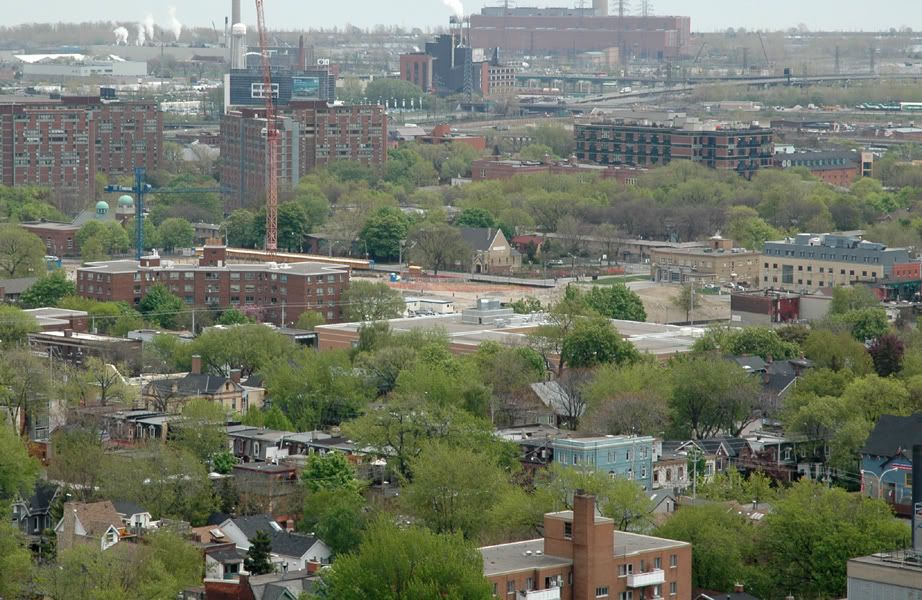From the Toronto Star:
A loss close to the heart
May 19, 2007 04:30 AM
Sandro Contenta
Almost two years into the redevelopment of Regent Park, relocated residents insist their community bonds are being bulldozed in the name of gentrification.
The $1 billion project has stressed out most of the 1,160 people displaced so far in the redevelopment of the subsidized housing project.
Residents initially thought they had the right to return to an apartment in the area. But they're now realizing the city-owned landlord, Toronto Community Housing, is counting on many not coming back. "People are worried that it will only be for the rich," says relocated resident Sureya Ibrahim, 29.
There will be about 400 fewer rent-geared-to-income units in the new development compared to the 2,087 now in Regent Park. Derek Ballantyne, head of Toronto Community Housing, believes there will enough subsidized units for anyone who wants to return. Other countries that redeveloped housing projects found 30 per cent of displaced residents don't return, he adds.
Four per cent of Regent Park's displaced residents have already left subsidized housing. Others are expected to grow roots in new neighbourhoods. Many relocated seniors lack the energy for another move.
Regent Park's residents' experience has become more relevant as another subsidized housing complex at Lawrence Heights faces redevelopment.
"Just because you put in new buildings doesn't mean you have a community," says Andrew Allan, United Church chaplain at Regent Park.
The move has been hard on the elderly. Some were separated from close friends, others from the network of social agencies near Regent Park that helped give meaning to their lives. Many feel isolated.
In one case, Allan had to perform a kind of exorcism for a senior terrified her new apartment was filled with ghostly vibes. "I went in and said a prayer for the place and asked God to banish the evil spirits," he explains.
Allan says five seniors have died since they moved. The deaths aren't being blamed on the relocation, but St. Michael's Hospital is studying the health effects of the move.
Problems emerged from the start. A "first come, first served" policy caused residents to be relocated to line up in the middle of the night in front of the Regent Park housing office. Jostling sometimes broke out, and those unable to attend – the disabled, the elderly, single or working parents – missed out on the best units.
Despite the problems, many involved have expressed grudging support for the redevelopment. The area has a high crime and poverty rate. And social agencies in the neighbourhood credit Toronto Community Housing for consulting with residents and trying to make relocation as smooth as possible.
Ballantyne dismisses thoughts the redevelopment is part of a trend to rid the downtown core of the poor. Regent Park will always have low income housing, he says. "You fear gentrification if a neighbourhood is going to become exclusive only to people who can afford to live there."
